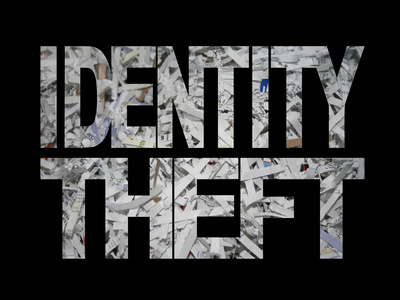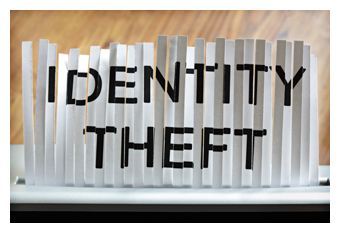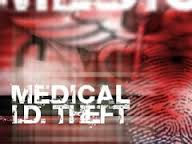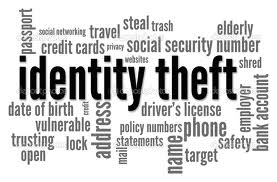Posts Tagged ‘identity theft prevention’
Do You Have An Identity Theft Protection Service This Holiday Season?
 The holidays are a busy time. While you’re running from store to store finding the perfect gifts and shopping online to get the best deals, each transaction puts you at higher risk for identity theft.
The holidays are a busy time. While you’re running from store to store finding the perfect gifts and shopping online to get the best deals, each transaction puts you at higher risk for identity theft.
The holidays are exciting for gift recipients just as much as they are for identity thieves. From everything like leveraging data breaches to using portable scanners to steal your money, identity thieves take advantage of every opportunity. You can prevent identity theft during the holidays (and year-round) to avoid false credit card charges and negative credit reports with an identity theft protection service.
Keep an Eye on Credit Card Statements
You’re likely to use your debit and credit cards a lot more during the holiday season. While you may be busy, don’t forget to take a few minutes out of your day to examine your statements and online activity reports. Set alerts on your accounts for large transactions, too. That way, if a large amount is charged or withdrawn, you’re alerted right away. Contact your financial institution the moment you notice an unauthorized charge.
Don’t Use Your Debit Card
Never use a debit card for purchases online or in-store. Checks and debit cards draw funds directly from your bank account. If an identity thief gets these numbers, they can use them to withdraw cash and even drain your bank accounts. It’s easier to report and reverse fraudulent charges with credit cards than it is with your bank account. And, of course, using an identity theft service is the best way to protect you from identity thieves during the holidays.
Use Credit Monitoring
There are a lot of free credit monitoring services that keep an eye on your balances, credit activity, and credit score. Sites like CreditKarma.com are totally free and allow you to view your credit report monthly. You can set alerts on these types of monitoring sites so that you’re notified the moment a new account, inquiry, or charge is made.
Be a Perceptive Online Shopper
It’s often easier to shop online than in-store, especially if you’re hunting for bargains. But don’t shop with any online retailer. Only use those with SSL certificates and other security measures in place. You can tell if a website has an SSL certificate by viewing URL at the top of your browser. It should begin with HTTPS instead of HTTP. If you can, stick to the big name online retailers like Amazon or large store chains when shopping online.
What if Your Identity is Stolen?
Even the most cautious of consumers can have their identities stolen. When it happens to you, you better be safeguarded by an identity theft protection and recovery service like ID360. The process of recovering your identity can cost over $3,000 and take as many as 600 hours of your time. It’s definitely the last thing you want to deal with around the holidays. Hiring an identity theft protection service allows you to focus on celebrating while a team of former law enforcement professionals work for you to help recover your good name and, of course, your credit.
Learn more about how you can protect your identity or how to sign up for identity theft services by visiting The Identity Advocate today.
Why You Need An ID Theft Recovery Plan—Not Just ID Protection
 Identity theft cases are growing at a staggering rate in the United States. While a lot more consumers are becoming aware of the risks and enlisting help via identity protection, most ignore the importance of having an ID theft recovery plan as well. The cost to recover your identity averages over $3,000 and could take as many as 600 hours. The entire process is tedious, time-consuming, frustrating, and could easily bankrupt you if you already have a dire financial situation.
Identity theft cases are growing at a staggering rate in the United States. While a lot more consumers are becoming aware of the risks and enlisting help via identity protection, most ignore the importance of having an ID theft recovery plan as well. The cost to recover your identity averages over $3,000 and could take as many as 600 hours. The entire process is tedious, time-consuming, frustrating, and could easily bankrupt you if you already have a dire financial situation.
But recovering from identity theft doesn’t have to be so devastating. In conjunction with identity protection, identity theft recovery services help keep your life in order when you become a victim of identity theft.
How ID Theft Recovery Services Can Help
Identity theft recovery companies are experts at handling the loss of your information. They track down the point of origin to help you discover what credit accounts are fraudulent. Then they go to work helping you restore your credit profile. They handle your recovery from multiple types of identity theft, including:
- Medical identity theft
- Data breaches
- Bank and/or credit card identity theft
- Government identity theft (e.g., Social Security fraud, Medicare fraud, etc.)
- Employment identity theft
- Phone and/or utilities identity theft
- Every other type of identity theft you can imagine—and there are many!
Steps An ID Theft Recovery Service Takes
Identity recovery requires experts, such as law enforcement professionals, who understand the complicated process of ID theft recovery. While the steps they take depend on the extent of your identity theft case, some services include:
- An expert who resolves all inaccurate information that appears on your credit report and/or medical records due to fraudulent activity.
- A professional who contacts financial institutions and other credit providers, and then closes down those accounts to ensure no further charges occur.
- Helping you file a police report as well as a report with other government agencies to thoroughly document the fraud.
- Cleaning up any fraudulent tax returns that may have been filed on your behalf, and working closely with the IRS as well as your state tax commission to correct those errors.
While identity protection is your first line of defense against ID theft, when identity theft does happen, having a respected ID theft recovery plan is place is critical. ID360 provides identity theft recovery services that give you peace of mind. From negotiating with creditors, obtaining your credit reports, dealing with your bank, filing FTC reports, and assisting with correcting your medical records, the company ensures that you are able to return to the good credit you had before the identity theft occurred.
Get more identity theft protection and recovery advice from the experts at The Identity Advocate by visiting www.TheIdentityAdvocate.com or calling 310.831.4400.
Do you know the 4 pieces of data not found in a background check thus helping employers prevent identity theft?
Are There Employee Criminal Background Check Laws?
Yes! They vary by state, but the Federal Fair Credit Reporting Act (FCRA) set national standards for performing an employee criminal background check. The law only applies to an employee criminal background check conducted by a consumer reporting agency, which is a firm that administers the employee criminal background check on your behalf. If you decide to perform an employee criminal background check in-house, make sure you follow your state’s background check laws carefully. Remember: Employees have rights, too!
According to the FCRA, some information cannot be reported in an employee criminal background check:
- Accounts in collection longer than seven years
- Paid tax liens beyond seven years
- Bankruptcies after ten years
- Arrest records, civil suits, and civil judgments after seven years
Linda Vincent, Founder of The Identity Advocate, is dedicated to helping consumers and businesses keep their identities safe. This article first appeared in the newsletter provided by The Identity Advocate.
Fight Back! Stop Healthcare Fraud and Abuse From Happening to You!
You trust in your physician to take care of you. You trust them to prescribe medications, diagnose symptoms when you’re sick, and help you maintain a healthy lifestyle. But is your physician doing something else—something nefarious—that you don’t know about? He or she could be committing healthcare fraud—at your expense!
 Healthcare fraud and abuse is on the rise in the United States. From physicians billing for services you don’t receive to performing unnecessary procedures, healthcare fraud and abuse takes a serious toll on your health and insurance. While most physicians do it to pad their revenue, these false claims, medical orders, and prescriptions put your life at risk.
Healthcare fraud and abuse is on the rise in the United States. From physicians billing for services you don’t receive to performing unnecessary procedures, healthcare fraud and abuse takes a serious toll on your health and insurance. While most physicians do it to pad their revenue, these false claims, medical orders, and prescriptions put your life at risk.
Billing Schemes
Physician billing schemes are one of the most common types of healthcare fraud and abuse. He or she will bill your health insurance for services that were never provided and collect reimbursements for those services. This can occur in many ways, from a chiropractor billing your insurance for five visits when you only visited twice, to a physician charging you for expensive medications (like those used to treat kidney disease, cancer, or HIV) that you don’t need or didn’t receive.
Physicians have also been known to offer in-house CT machines and bill your insurance for scans that were never scheduled, let alone performed. Or a physician may perform a procedure to add a stent you don’t really need just to be able to bill your insurance and collect a claim. All of these extra charges and expensive services can impact both your insurance premiums and your health. The list of offenses goes on and on.
Upcoding For Higher Claim Amounts
Upcoding is another common form of healthcare fraud and abuse. This is a process where the physician charges for a higher service than what was actually performed. For example, you visit your physician for a routine office visit, which has its own code and reimbursement amount. However, your physician charges your insurance for an extended office visit, which costs more. According to recent statistics, making a simple code change like this could increase a physician’s revenue by $70,000. While his or income is increasing, yours is declining as you watch your insurance premiums steadily rise.
How to Fight Healthcare Fraud and Abuse
As frightening as all of this is, you can take steps to protect yourself:
- Review your billing statements and explanation of benefits (EOB) from your insurance provider. Verify that the charges made by your physician coincide with services, medications, and equipment you actually received. If you are confused, or feel you did not receive services, call the physician immediately!
- Annually request all treatment paid for by your insurance carrier. Compare them to your EOBs. If you find discrepancies, notify your carrier immediately.
- Request receipts when you pay at your physician’s office, as well as a receipt of all services performed.
- If you choose to pay cash for a service, watch for an EOB that the provider also charged your insurance provider.
Despite all you do to fight back against healthcare fraud and abuse, 10 to 30 percent of all medical patients fall victim. Get extra protection by hiring a fraud and abuse expert that specializes in safeguarding you from the consequences of these types of physician practices. Whatever you do, be proactive to prevent it from happening to you.
Make the Right Move
Consider signing up for an identity theft protection plan with a company like ID360, the only one managed by law enforcement that also restores your identity back to pre-theft status after it’s stolen. You can also discover helpful resources over at The Identity Advocate, and contact an experienced investigator to learn more about resolving healthcare fraud and identity theft. Fight back!
Related Articles:
Protect Against ID Theft With These Holiday Shopping Tips
It’s easy to let your guard down during the hustle and bustle of holiday shopping. But according to the Consumer Federation of America identity theft rates reach their peak around the holiday season. From pick pockets to online scams to credit card skimming, identity thieves are on the prowl to take advantage of consumers who are too busy to look out for them. Luckily, there are many things you can do to protect against ID theft this holiday season and keep your identity safe for the New Year.
Be Aware of Pick Pockets
 Pick pockets are out in full force during the holiday shopping season. Ladies, carry a small purse close to your body (or avoid bringing one altogether), and gentlemen, put your wallet in your front pocket. Keep an eye on your personal belongings at all times. A stealthy thief only needs a second to brush up against you and disappear into the crowd with your credit cards and ID. For even better protection, buy an RFID-blocking wallet to prevent thieves from scanning the RFID chip in your credit cards.
Pick pockets are out in full force during the holiday shopping season. Ladies, carry a small purse close to your body (or avoid bringing one altogether), and gentlemen, put your wallet in your front pocket. Keep an eye on your personal belongings at all times. A stealthy thief only needs a second to brush up against you and disappear into the crowd with your credit cards and ID. For even better protection, buy an RFID-blocking wallet to prevent thieves from scanning the RFID chip in your credit cards.
Protect Yourself Online
Online holiday shopping is convenient, but it also puts you at risk for identity theft. Any online shopping should only be done over an encrypted connection. You can protect against ID theft by making sure the site has a verified security certificate as well. When you get to the payment section of your order, check the website’s address to make sure it begins with “https” (the “s” indicates a secure site) and includes a padlock icon. Clicking the icon will allow you to view the security certificate.
You also want to avoid making bank transfers over your cell phone or when using a public wireless network. Identity thieves may be monitoring those connections to gain access to your bank account information. If you must do banking via cell phone consider establishing a virtual private network (VPN).
Don’t Toss Papers and Receipts Away
Tossing out receipts and any other paperwork containing your personal information is never safe. This is especially true during the holidays when you have lots of shopping bags and trash going in and out of the house. Identity thieves have no qualms with sifting through your garbage to find the information they need. Protect against ID theft by shredding all documents that have your full name, date of birth, credit card information, Social Security number, and any other personal information instead of throwing them in the wastebasket.
 Safeguard Your Credit Card Information
Safeguard Your Credit Card Information
Shop with cash to reduce the chances of identity theft whenever you can this holiday season. If you need to shop with a credit/debit card, only use ATMs you trust. Many identity thieves install card skimmers on ATMs in high-traffic areas to swipe your debit card information. Skimmers are virtually undetectable to the naked eye, so you won’t know you’re a victim of identity theft until you see the fraudulent charges on your statement—and by then it may be too late to recover the charges. Remember that debit cards need daily monitoring.
When shopping online, try filtering the purchase through a payment gateway like PayPal or use a debit card specific for online shopping, instead of entering your credit card information directly on the site. Protect against ID theft by only buying from reputable websites (remember that HTTPS security) and, if you’re having your merchandise shipped, make sure to request a signature so you know when and who received it.
Be Proactive
Finally, check your credit card statements at least once a month and view your credit report by signing up for creditkarma.com to make sure nothing is amiss. You can also be proactive by using an identity theft protection service such as ID Theft Solutions. This trusted and affordable identity theft prevention firm is the only one that guarantees to recover your identity when it’s stolen.
Don’t become another identity theft victim this holiday shopping season. Take a few extra precautions, shop safely, and enjoy! Remember to visit www.TheIdentityAdvocate.com or call 310.831.4400 for more tips to protect against ID theft all year long.
4 Tips to Prevent Elderly Identity Theft
More than 12 million people had their identities stolen last year—a shocking statistic that continues to rise. While anyone can become a victim of identity theft, this crime especially impacts seniors who often have more wealth and have spent a lifetime developing good credit.
Elderly identity theft is common among seniors for many reasons. They are generally more trusting than younger adults, not as aware of identity theft risks and scams, and are also more likely to know the identity thief. They are prime identity theft targets online, over the phone, and even in their own homes since they’re less likely to suspect loved ones of the crime.
 Whether you’re a senior or a family member looking for ways to prevent elderly identity theft, there are many things you can do to stay protected. Let’s take a closer look at four tips to prevent identity thieves from claiming another senior victim.
Whether you’re a senior or a family member looking for ways to prevent elderly identity theft, there are many things you can do to stay protected. Let’s take a closer look at four tips to prevent identity thieves from claiming another senior victim.
1. Be Safe Online
Seniors who are typically less familiar with Internet security should avoid risky behavior online. This includes online banking and providing personal information in response to email spam. Encourage them to conduct all of their banking in person and ignore emails from people they don’t know. It is also a good idea to install security software on their computer to help prevent hackers from accessing their private information.
2. Freeze Credit
You should also implement a credit freeze. Freezing credit is easy to do and it’s an effective way to avoid elderly identity theft. To freeze a loved one’s credit you will need to contact the three credit agencies (TransUnion, Equifax, and Experian) and request a freeze. You will be required to provide the full name, address, Social Security number, a copy of a government-issued ID, and a copy of a bank statement, insurance statement, or utility bill. The freeze won’t allow any new credit accounts—including loans, bank accounts, and rental agreements—to open unless you give the credit bureau the permission and the password to unfreeze the account.
3. Stop Junk Mail
It’s easy to ignore junk mail, but many of us forget how much personal information it can contain. You can help your elderly loved one opt-out of receiving junk mail by following the instructions on www.OptOutPreScreen.com or by calling 1-888-567-8688. This eliminates or at least significantly reduces junk mail such as pre-approved credit card offers that provide opportunities for identity thieves. To prevent elderly identity theft you also want to make sure you shred all promotional mail that includes personally identifying information. Remember that simply tossing this type of mail in the trash makes it easier for dumpster divers to steal your loved one’s identity.
4. Keep Private Information Private
 Credit cards, Medicare cards, and Social Security numbers are among the most sought after sources of information identity thieves use to commit elderly identity theft. Seniors should keep information such as Medicare statements in a safe or safe deposit box, and shred them after confirmed treatments. They should never carry their Social Security card with them and carry their Medicare card only to doctor visits.
Credit cards, Medicare cards, and Social Security numbers are among the most sought after sources of information identity thieves use to commit elderly identity theft. Seniors should keep information such as Medicare statements in a safe or safe deposit box, and shred them after confirmed treatments. They should never carry their Social Security card with them and carry their Medicare card only to doctor visits.
Identity thieves regularly take advantage of the fear many seniors have about their Social Security benefits and Medicare coverage. A trusting senior may assume that the person at the door, on the other end of the phone line, or in an email are simply doing their job when they ask for their Medicare information. However, a common elderly identity theft scam is for a thief to call a senior and claim to be from the Medicare office. The thief asks for verification of the senior’s Medicare account number so that benefits can be paid, and then disappears with all of the information he needs to create a new identity. Make sure your loved one is aware that the Medicare office will never ask for this type of verification via phone, email, or in person.
Start Preventing Elderly Identity Theft
In addition to following these tips, you should also stay in regular contact with your elderly loved one to keep track of any suspicious behavior. There are also several ways to proactively stop identity theft. Sign-up with a prevention and recovery service such as ID Theft Solutions so the solutions for protecting your identity are all in one place. When your identity is compromised, you will have a personalized, one-to-one partner to take on the time-consuming recovery process on your behalf.
As always, you can rely on The Identity Advocate to keep bringing you tips to safeguard the identity of all of your family members. Learn more about preventing elderly identity theft, medical identity theft, social media identity theft, and all other forms of identity fraud by visiting www.TheIdentityAdvocate.com or by calling 310.831.4400.
The Right Prescription to Prevent Medical Identity Theft
 What do you do with your empty prescription bottles? What about all of the medical information you receive, such as your explanation of benefits? Being careless with your personal medical information can be dangerous, and the theft of this priceless data can be deadly.
What do you do with your empty prescription bottles? What about all of the medical information you receive, such as your explanation of benefits? Being careless with your personal medical information can be dangerous, and the theft of this priceless data can be deadly.
Approximately 1.5 million Americans are victims of medical identity theft each year, a crime that costs the nation $41.3 billion annually. Prescription fraud is a growing form of medical identity theft that is not only extremely costly and time-consuming; it can also put your health at risk and even be life-threatening. Unfortunately, medical identity theft isn’t commonly known by many Americans, and often isn’t detected until it’s too late. When we don’t take precautions to prevent prescription fraud and other forms of medical identity theft, we put ourselves in jeopardy of becoming another victim.
What is Prescription Fraud?
Prescription fraud occurs when identity thieves use your personal information to fill prescriptions in your name. They use your medical identity to receive medical treatment at hospitals and doctors’ offices, obtain medications, and access other healthcare services.
Prescription fraud doesn’t just leave you with a huge bill—it can potentially put your health at risk as well. You may find that false information has been added to your personal health record, such as a change in blood type or supposed allergies. Every medical procedure received and prescription filled by the identity thief becomes part of your medical history, which means you may not be able to obtain the life-saving treatment you need in an emergency medical situation.
Detecting and resolving medical identity theft can be difficult as well. You may not discover that you’re a victim until a pharmacy refuses to fill a prescription because it conflicts with another medication you appear to be taking. To make matters worse, fixing errors in your record can be very challenging due to medical privacy laws. Ironically, the same laws that were implemented to protect your privacy and health information are now protecting the medical identity thief. This restricted access to medical records prolongs the duration of the theft, costing you countless time, money, and frustration.
How to Prevent Prescription Fraud
 One of the easiest ways to avoid this type of medical identity theft is simply to be aware of what you throw in the trash. Prescription medication labels carry such sensitive information as your full name and address, the prescribing physician, the type of medication, prescription number, and the pharmacy’s contact information—all of the things a thief needs to perform prescription fraud. Instead of throwing empty prescription bottles in the trash, including the drug information forms, remove the labels and shred them. Other ways to prevent prescription fraud:
One of the easiest ways to avoid this type of medical identity theft is simply to be aware of what you throw in the trash. Prescription medication labels carry such sensitive information as your full name and address, the prescribing physician, the type of medication, prescription number, and the pharmacy’s contact information—all of the things a thief needs to perform prescription fraud. Instead of throwing empty prescription bottles in the trash, including the drug information forms, remove the labels and shred them. Other ways to prevent prescription fraud:
- Review every explanation of benefits (EOB). Examine the charges for medical visits or prescriptions you didn’t receive, and report any suspicious activity immediately.
- Never simply toss medical information in the trash. Dumpster divers can easily access your personal information if you fail to shred the documents.
- Secure medical records. Keep your medical records in a safe place inside your home or in a safe deposit box, away from the prying eyes of visitors. Believe it or not, friends and relatives who have easy access to your personal information are often the culprits.
- Safeguard prescription bottles. Hide or lock-up your medication rather than leaving it in plain sight or in a medicine cabinet. This will prevent anyone from walking off with your prescription medication and, later, your identity.
- Manage written prescription slips. Don’t throw them away or leave them out where they can be stolen. These slips are all an identity thief needs to fill a prescription in your name, leave you without your medication, steal your medical identity, and even put your life in danger.
- Enlist the help of an identity theft protection service such as ID Theft Solutions, which can proactively help prevent medical identity theft and even restore your identity when it’s stolen.
Protecting your identity is an ongoing process that takes vigilance. By taking some common sense precautions, you can avoid the exorbitant costs and health risks of medical identity theft. Get more tips for preventing prescription fraud and other types of medical identity theft by visiting The Identity Advocate at www.TheIdentityAdvocate.com or calling 310.831.4400.
Today’s Grave Robbers: Identity Theft and the Deceased
The term “grave robbing” used to refer to the appalling act in which thieves would dig up graves and steal a deceased person’s body and/or belongings. Today that term has taken on a new definition that is not only atrocious; it is also becoming an alarming trend. Over the past few years the number of identity theft cases involving the deceased has grown exponentially. Identity thieves know family members are too busy mourning the loss of a loved one to worry about protecting his or her identity. After all, who would think to protect the identity of a loved one who is deceased?
It is estimated that over 2.5 million deceased Americans become victims of identity theft each year. Identity thieves can get loans, obtain credit cards, and even apply for jobs under these stolen identities. About 800,000 deceased people are deliberately targeted—meaning the thieves know the person has passed away. That’s a shocking 2,200 people every day. While the debt amounts and numbers of cases found by authorities are astounding, the hassle and stress associated with recovering a deceased person’s identity and resolving those debts is damaging enough. Luckily, there are ways family members can prevent identity theft and enjoy a little peace-of-mind.
The three credit reporting agencies—TransUnion, Experian, and Equifax—can take up to six months to recognize that a person has passed away. This is prime time for identity thieves to take action, and they can do a tremendous amount of damage in this timeframe. When a loved one dies, family members should immediately notify all agencies and authorities rather than wait for them to receive word on their own. This can be done by:
- Sending a death certificate to each of the credit reporting agencies. Only official copies are accepted, so it is recommended that family members obtain at least a dozen copies.
- Requesting an alert on the deceased’s credit report that states “Deceased. Do not issue credit.” This will prevent new accounts from being opened.
- Sending a death certificate to any credit card companies, financial institutions, and even collection agencies where the deceased may hold accounts.
- Notifying the DMV and canceling the deceased’s driver’s license so an identity thief cannot change the address and use the license to commit fraud.
- Sending a death certificate and reporting the death to the Social Security Administration. A person’s Social Security number is one of the most important pieces of information used to steal an identity.
- Contacting the bank to setup a credit freeze so identity thieves cannot open new accounts.
Family members should send all correspondence via certified mail and keep copies of their correspondence as well. They can also prevent identity theft by shredding documents containing the deceased’s personal information before discarding them.
Obituaries
Identity thieves often scan local obituaries looking for their next victims. Families can prevent making their loved one a target by omitting any valuable personal information, such as date of birth, birthplace, spouse’s name, address, and maiden name.
Review Credit Reports
The executor of a deceased person’s estate or his surviving spouse may request a copy of his credit report from each of the credit reporting agencies. Family members should examine the credit reports carefully and see if any suspicious activity—such as new credit card accounts or credit inquiries—have been made. Credit reports should be pulled immediately after death and then again a few months later.
These are some of the most important ways a family member of a deceased person can help prevent identity theft. Since these issues can be overwhelming, especially in the days and weeks following a loved one’s death, it’s often best to seek out professional assistance. Contact an identity theft prevention expert at 310.831.4400 and visit www.TheIdentityAdvocate.com for more information about protecting your loved one’s identity and reputation long after they’re gone.
You can also help prevent identity theft by hiring ID Theft Solutions, which is the only identity theft protection company managed by law enforcement and focuses on returning your identity back to pre-theft status.





